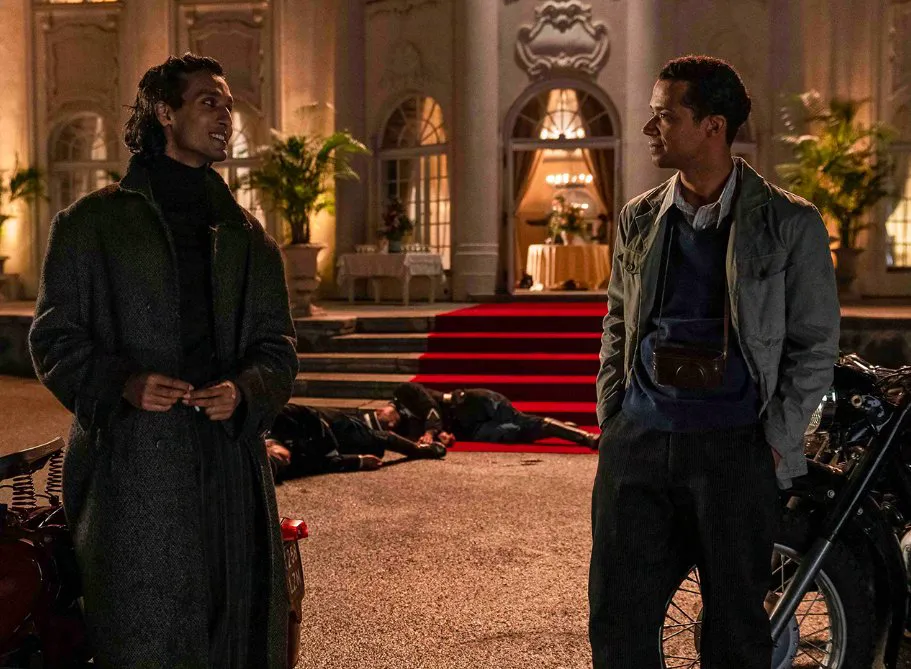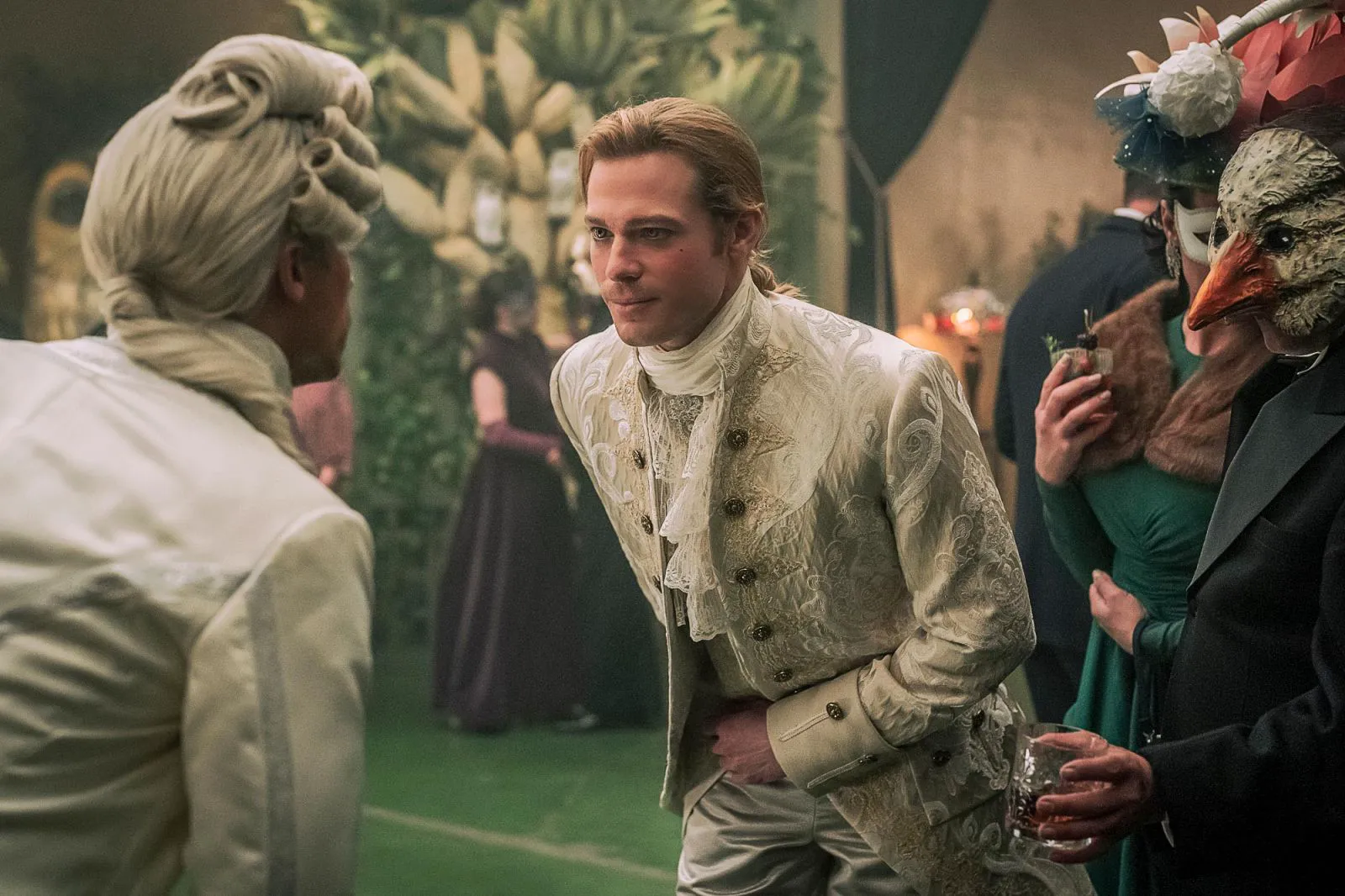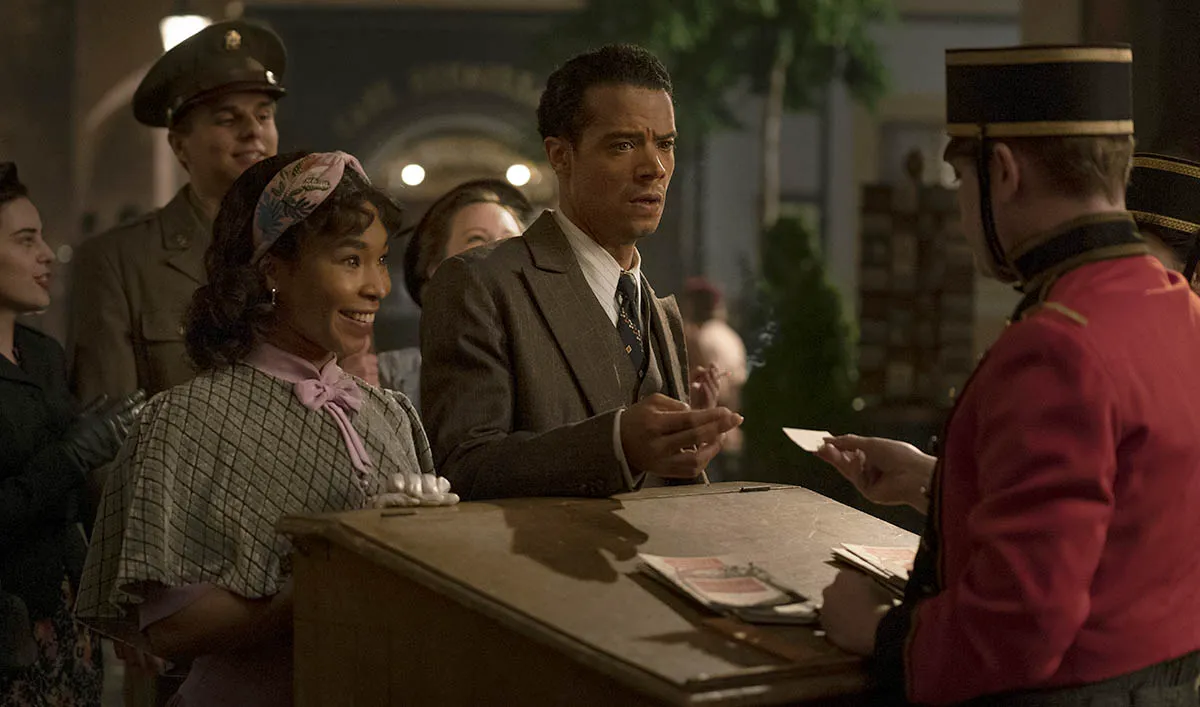In the autumn of 2022, AMC, the channel that brought us “Breaking Bad” and “The Walking Dead,” premiered a new adaptation of Anne Rice’s immortal novel “Interview with the Vampire,” the first book in “The Vampire Chronicles” series, published way back in 1976. Despite the incredible popularity of Rice’s literary works, there have been surprisingly few Hollywood adaptations of “The Vampire Chronicles.” The AMC project is only the second, following Neil Jordan’s iconic “Interview with the Vampire” starring Tom Cruise, Brad Pitt, and Kirsten Dunst. The new series, with Rolin Jones (“Perry Mason”) as showrunner, was personally approved by Rice herself—sadly, the writer did not live to see its premiere.

Jacob Anderson as Louis in a still from “Interview with the Vampire”
Season 2: Changes and Focus
The second season of “Interview with the Vampire” has already faced two significant losses: firstly, Bailey Bass, who played Claudia, has been replaced by Delainey Hales (“Too Close”); secondly, the creators have abandoned the Lestat (Sam Reid) storyline, leaving his presence in the show as a nagging and rather malevolent memory. The main plot focuses on the relationship between Louis (Jacob Anderson) and Claudia: together they embark on a long journey through Eastern Europe, get caught up in the events of World War II, and then settle in glamorous Paris, where they join the immersive theater of the ancient vampire Armand (Assad Zaman).

Sam Reid as Lestat in a still from “Interview with the Vampire”
Themes and Contrasts
As in the first season of “Interview with the Vampire,” Jones continues to navigate between fantasy and reality, philosophical monologues and graphic violence, past and present, and now also Lestat and Armand. Being not only vampires but also Americans, Louis and Claudia observe the unfolding war from a safe distance, experiencing a vague sense of guilt towards a broken and devastated Europe. Their search for the ancients leads them to Romania, liberated by the Red Army, which, as one might guess, is not experiencing its best years. From the very beginning, the season explores the theme of memory—collective memory, inextricably linked to the development of society, history, and culture, and personal memory, influencing the growth of each individual. And while Europeans try to rethink the experience of geopolitical violence, Louis lets go of the traumas of emotional violence. In both cases, memory is presented as an abstract monster standing in the way of a better future, a darkness of the past from which there is no escape.
The first episodes of the second season are like entering an episode of depression: the hopelessness of the surrounding world resonates with the mental state of Louis (if, of course, vampires have a soul), who experiences agonizing remorse for the murder of Lestat. Sam Reid’s character, like a ghost of a nagging ex, clings to him with a death grip and does not let go until the very end. Getting acquainted with the Parisian vampires changes things a bit.

Jacob Anderson as Louis in a still from “Interview with the Vampire”
Armand vs. Lestat
In the second season of “Interview with the Vampire,” the ancient vampire Armand is contrasted with Lestat, and Assad Zaman with Sam Reid. The series version of Armand is a subtle and accurate embodiment of the character, who in the book was described as a “gentle youth with curly hair,” much more canonical than Antonio Banderas’ version in Neil Jordan’s film of the same name. And yet, Banderas once perfectly balanced Tom Cruise, but Zaman does not stand up to comparison with Reid—his inner grandeur always remains somewhere beyond the screen. On the other hand, Armand’s fragile tenderness—something that Lestat never had—harmonizes with Louis’ melancholic nature. They are also united by their national identity: both are dark-skinned immigrants who ended up in white-faced Europe more by coercion than by choice.
And yet, the ephemerality of Zaman’s character, as well as the short story of his acquaintance with Lestat, preemptively introduced into the plot by the showrunner, cannot fill the dynamic voids of the first episodes of the second season, which is not in a hurry to accelerate. Obviously, Jones needed this pause—just as a victim needs time to forget their abuser—however, in the case of Louis, the long-term recovery period has turned into a painful stagnation, which has also affected the quality of the series. It is possible that the blurred timing of “Interview with the Vampire” is due to the fact that the book is gradually coming to an end, and no one wanted to take on a new one in the middle of the season. In any case, the magic of the series adaptation of “Interview with the Vampire” has not disappeared, which means that the show is still worth watching.